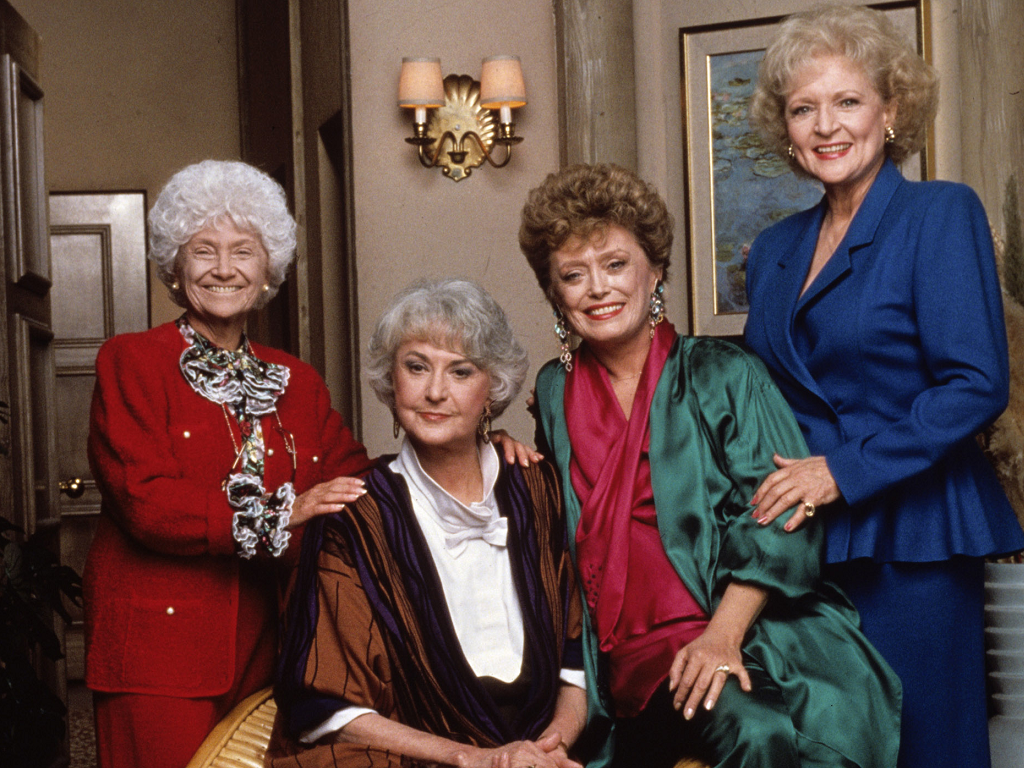After my post on The Fresh Prince of Bel Air earlier, I began thinking about the media industry. One of the things I find most fascinating when studying history, businesses, mental models, and the human experience, is the unexpected cultural phenomenon. There are certain things that happen, at certain moments in time, that are only possible because of a confluence of events that create a feedback loop. Billy Joel once explained the success of the Beatles through this framework, arguing persuasively that a lot of the appeal had to do with them arriving as a breath of fresh air in the aftermath of the assassination of President Kennedy.
Other times, hits emerge in places because they address an unspoken need, or longing, or fear, or aspiration in a way that speaks directly to the heart. It’s long been a hobby of mine to open case studies on these and try to answer the questions, “What is happening?”, “Why is it happening?”, “Can it be replicated?”, “What are the variables involved that permitted this situation to manifest?”, and “Are there any lessons here I can learn?”.
Cracking the Code of How Four Senior Citizens Helped Disney Stockholders Make a Lot of Money
In all of my files and writings, the one that still causes me to laugh at the absurdity is the Golden Girls phenomenon, which helped the Walt Disney Company stockholders make a lot of money. I don’t remember ever really watching it during its original airing but I do remember it always there, somewhere in the background. The show, which was broadcast between September 14, 1985 and May 9, 1992, followed the lives of four elderly women, living together in Florida. The mere idea that it could compete with the half-naked stars, violence, or whatever the other networks were trying to throw out there in the never-ending pilot season sounded absurd. And, yet, a funny thing happened. It became one of the biggest cultural icons of all time, across most demographics.
[mainbodyad]It didn’t matter if you were a 35-year old father-of-three steelworker, suburban housewife, medical doctor, waitress, stock broker, stay-at-home mom, teenager, or senior citizen yourself, the odds were good that you tuned in when a new episode aired. Male, female, young, old, nearly everybody watched this show. The Golden Girls minted so much money for Disney across so many demographics that all four of the actresses were awarded one of the most incredible honors in entertainment, the Disney Legend award, which are given only to people who have made an “extraordinary and integral contribution to The Walt Disney Company”. They include folks like Steve Jobs, who turned Pixar into an animation powerhouse, Jim Henson, who created the Muppets, Julie Andrews, who played Mary Poppins, Elton John, who composed the songs for The Lion King, Robin Williams, who was both the inspiration and voice for the Genie character in Aladdin, Carl Barks, who created Scrooge McDuck, the Sherman Brothers, who composed some of the most iconic music that almost all of you know by heart, and Ub Iwerks, who co-created both Oswald the Lucky Rabbit and Mickey Mouse with Walt Disney himself. (Among the perks of winning, the recipient is given a Disney Golden Pass, which entitles them to free lifetime entrance to all Disney theme parks around the world.)
The Golden Girls destroyed practically everything in its time slot, no matter what the other networks tried to do. It remains one of only three television shows in history where every single one of the leads won an individual Emmy. Nearly three decades later, you could probably walk onto any street, anywhere in the United States and still get a crowd to break out into song, knowing every word of the theme by heart. Try it. Play this in an office and almost everyone of a certain age knows it instantly:
On the surface, it makes no sense to me. Imagine walking into a planning meeting for a media company and saying, “I’m going to make a television show about four geriatric ladies living together in a retirement community. It’s going to be a hit with everyone from teenage boys to urban women living in Manhattan.” Then, you put up a production still. They would have thought you were nuts. In this case, it only happened because President Brandon Tartikoff specifically drafted writer Susan Harris to create a new sitcom based on growing older as a woman after realizing there was a lot of pent up demand from underrepresentation. As media specialist Richard Davis put it the year prior to the show’s debut, “Older women on television are nearly invisible. An older man might be seen on TV every 22 minutes, but an older woman would only be seen every four to five hours.”

For a long time, I’ve tried to figure out the magic behind the profits. Besides the fact that Disney was willing to pay up for talent with a long history in the entertainment industry, it still eludes me a bit. Newspaper articles at the time explain that the most common response is the show gave people hope there was “life after 50”, which was a very different thing back in those days.
Otherwise, I haven’t quit pinned it down. My working hypothesis is that the show’s willingness to use humor as a healing mechanism to delve into topics that were too dark for daily conversation made people emotionally identify with the cast, each of whom served a different role.
Divorce, for example, was a very stigmatized thing even in the 1980’s. Whether you were one of the spouses involved or the children of divorced parents, it was often a big deal. Less than a decade before, the divorce revolution had begun and marriages were breaking apart at rates unseen (and to many, unimaginable). Yet, in one of the very first episodes, Dorothy, a lead character, confronts her former husband of 38 years who walked out on her, delivering this gut-wrenching dialogue:
“You walked on me, Stanley Zbornak. You walked out on me and you didn’t even have the decency to tell me you were leaving. I heard it from some lawyer over the telephone. A stranger, Stanley – a total stranger! – told me that my marriage was over. Things happened … you’re damn right things happened. Thirty-eight years happened. Thirty-eight years of sharing and, and crying, and dreaming and fighting and loving and, and children and diapers and, and school plays and Little League and worrying if you’d get through your gall bladder surgery and wondering if I’d get through another Sunday dinner at your mother’s house. And the lean years, when the business failed. And the good years. And the happy Christmases. All those things happened, Stanley, and because they happened, I deserved better than a stinking phone call from my husband’s legal representative. You had a choice, Stanley, and you took the easy way out and it was a rotten thing to do. But now you’re here in front of me and you can’t run away, and I finally get to have what you tried to cheat me out of—I finally get to say good-bye, Stanley…”
It taps into mere association on a wide range of topics. Everyone who has ever been abandoned by their spouse, or who suffered through the pain of a business failure, who spent years running around getting the kids ready for some event or woke up early to watch them unwrap presents by the Christmas tree could imagine what it felt like to be in that character’s shoes in that moment.
I Think Digital Distribution Gives Indie Studios a Chance to Hit it Big In a Way That Hasn’t Been Possible In a Century
The more case studies I do of cultural phenomenon, the more I am convinced that Disney himself got it right. It’s not about budget. It’s not about fame. It’s not about beauty. It’s not about talent. Those things are secondary or tertiary. Rather, the magic happens when the audience is moved to feel something, on a primal, emotional, biological level, that they connect deeply with their own life. Whether it’s Nobuo Uematsu breaking all the rules when he composed the overworld theme of the Final Fantasy VII soundtrack to purposely try to cause the player to feel sadness, discontentment, and anxiety – look at the comments decades later if you doubt how deeply it resonates with people, instantly transporting them to a different place in their head and memory! – or Carl Sagan bringing Cosmos to the world by igniting the imagination and passion of a generation of scientists, the heart is what provides the fuel. You have to capture the heart. No matter how technically good you are, no matter how superior your product, it’s the imagination and the primal you need to capture.
 Spongebob Square Pants it the same way. It makes no sense. When it was first released, my dad thought it was a joke; a sort of SNL skit. Who would have ever imagined the empire this little guy would build?
Spongebob Square Pants it the same way. It makes no sense. When it was first released, my dad thought it was a joke; a sort of SNL skit. Who would have ever imagined the empire this little guy would build?
I think this is where indie game studios, movie studies, and other non-conglomerate entities have a huge advantage. If you have a project that you believe in and your judgement is good, it’s much easier to have the freedom to pursue it outside of the traditional restraints imposed by a corporate bureaucracy. I truly believe that one of the things you’re going to see in the coming decades is a big rise in niche empires. That is, people making large amounts of money by doing their own thing, distributing it electronically directly to consumers, and not having the same barriers to entry of the past. If you’re an artist, I think it would be entirely possible to develop an animated web series and make a fortune from your house. The rules are different. The model is different. Those with the skill or talent to crack codes, creating cultural phenomenon, are in a much better place than they’ve ever been if they have the skill and courage to take advantage of it.
[mainbodyad]



